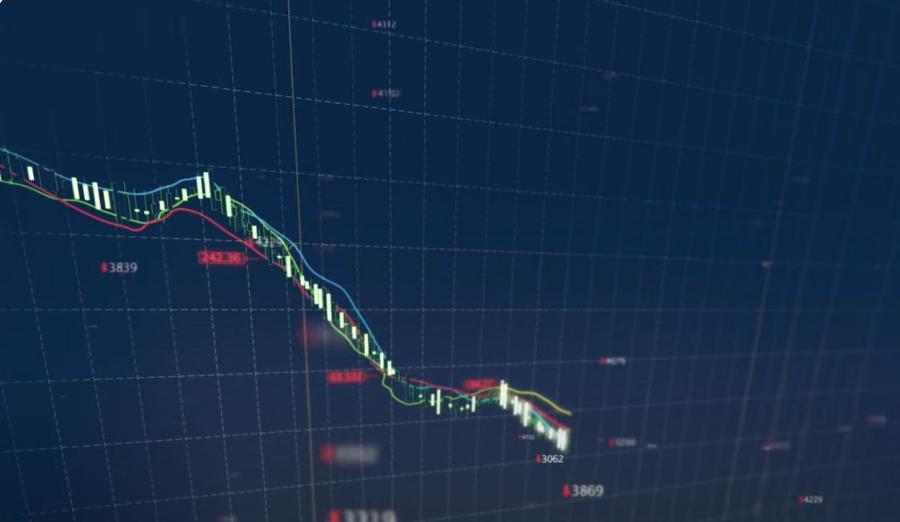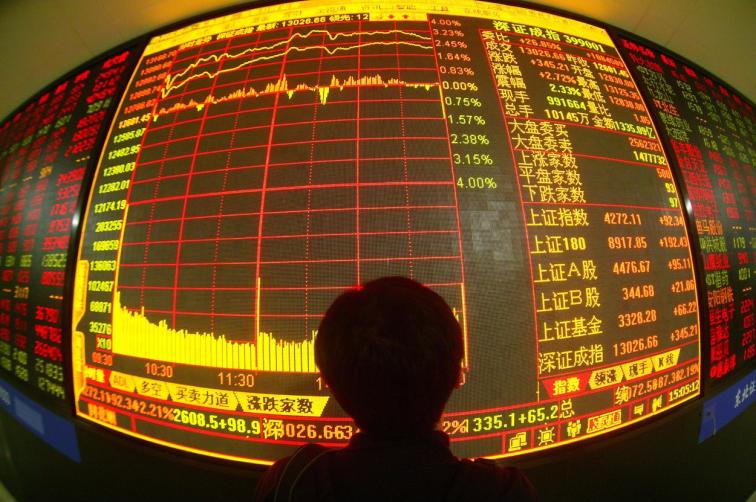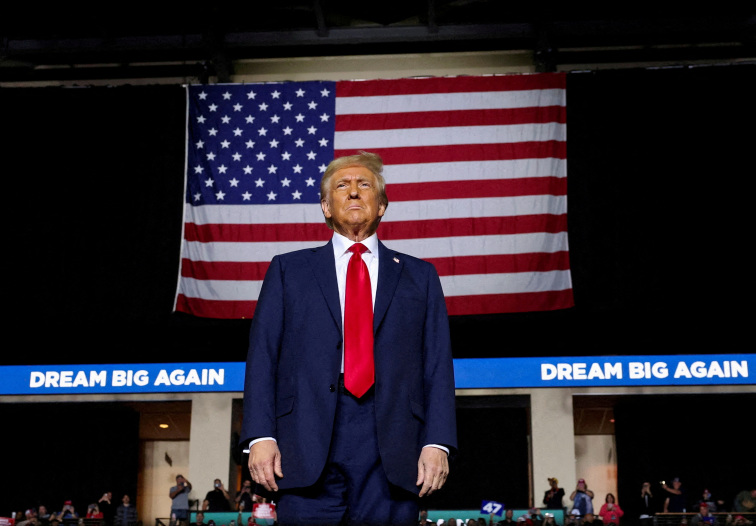Illustrative image: The Chinese stock market is in despair, and Chinese investors are trembling from their losses! (Video screenshot)
People News - Due to prolonged economic stagnation, investors have lost hope in China's economic recovery. At the start of January 2025, retail investors began a massive sell-off, causing severe losses in the Chinese stock market. As of January 13, the Shanghai and Shenzhen stock exchanges had dropped by about 6%, making them the worst-performing major markets globally.
According to a report from Dajiyuan, citing Reuters, three months ago, the Chinese Communist Party (CCP) promised to implement stimulus plans to drive up the stock market. Short-term investor Lu Delong believed this and became optimistic about the Chinese stock market. However, this optimism quickly disappeared in the first week of the new year, forcing him to sell stocks and calculate his losses.
Disappointed by the Chinese Communist Party's economic policies and concerned about possible U.S. tariffs, many mainland retail investors began selling off stocks after the New Year. External analysts estimate that this could lead the Chinese stock market into a prolonged downward trend lasting for years. Retail investors' funds account for about 70% of Chinese stock market transactions. The sell-off is essentially a vote of no confidence in the market. The massive sell-off by Chinese retail investors in early January has already led to a significant slump, amounting to a $11 trillion loss in the Chinese stock market.
Clearly, investors' sell-off actions reflect pessimism about China's economy, which has spilled over into the yuan and bond markets. To prevent further spreading of these negative sentiments, the Chinese government has had to intervene to stop the yuan's depreciation and government bond yields from falling.
In late September last year, the Chinese Communist Party announced an interest rate cut and launched a series of market-friendly policies. Desperate investors rekindled their enthusiasm, flooding into the stock market, pushing the benchmark index, the CSI 300, up by 40% in just two weeks. This move was widely described as a "manufactured bull market." However, once investors saw the specifics of the policies, the market began to cool down.
In his New Year's speech, Chinese Communist Party leader Xi Jinping claimed that a series of "advancements" had been made, such as in agriculture and electric vehicles. However, he downplayed the significant challenges the overall economy faces, such as the real estate crisis, massive debt, and overcapacity.
Xi Jinping's statement did not bring hope to investors.
At the beginning of 2025, signs of disillusionment began to appear in China's stock market. As of January 13, the Shanghai and Shenzhen stock markets had fallen by approximately 6%, making them the worst-performing major markets globally.
Since trading resumed on January 2, 2025, Chinese stocks, bonds, and the currency have all experienced significant declines. The CSI 300 index plummeted by 2.9% on the first trading day of 2025, marking the worst New Year opening since 2016. The index dropped more than 5% last week, and after a slight increase on January 7, it continued to decline.
On January 13, the China Securities Regulatory Commission (CSRC) held its 2025 System Work Conference, outlining five key directions for the year, including "upholding stability as the main priority... and enhancing the competitiveness and attractiveness of the A-share market." However, these measures failed to inject vitality into China's economy.
A YouTube user, "Prince Shen," said on his personal channel: "The first day of trading in 2025 saw a crash, a full decline, the worst in eight years. The stock market is stuck between 3,700 and 4,000 points, and if it falls further, the Communist government might use strong stimulus measures to prop it up. So, in China, if you don't lose money in the stock market, you're lucky. Don't think about making money; only a very few people ever make money. China is a country where politics reigns, and you can't apply Western economic principles to China. It’s not correct to assume that macroeconomic analysis that works for Western countries also works in China. In China, the key is government decisions. China is a closed country, and political changes are determined by a very small group of people, often by the highest leadership. Even Communist Party officials can't see the situation clearly."
A netizen commented: "President Xi is truly a once-in-a-millennium talent. In just a few years, he’s reduced the real estate market to near collapse, making people in Taiwan envious. Even more impressive is how, under Xi's personal command and strategy, the stock market has fallen to rock bottom. Once the king of stocks has now dropped to delisting status in just four years. This is an unprecedented, unmatched achievement." Another user added: "The stock market on the other side is like a patient in ICU. No heartbeat, give it a shot, if it shows any signs of life, hurry to treat other parts."











News magazine bootstrap themes!
I like this themes, fast loading and look profesional
Thank you Carlos!
You're welcome!
Please support me with give positive rating!
Yes Sure!